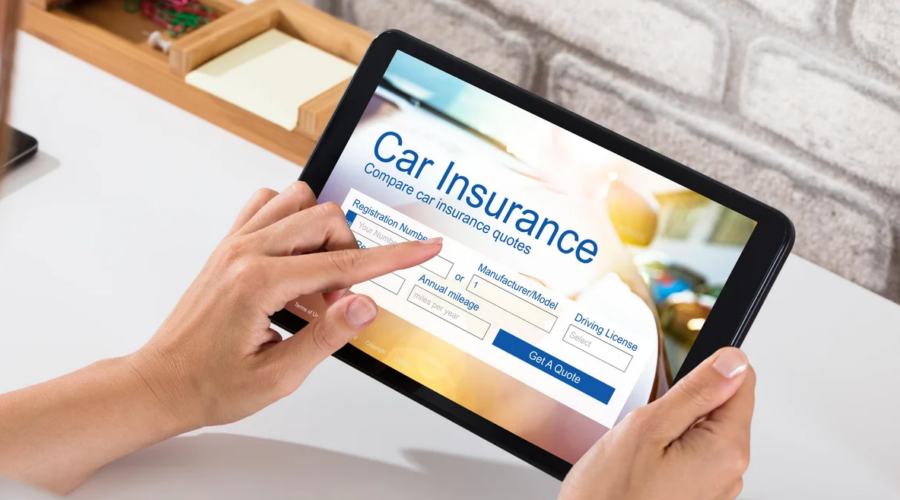Buying auto insurance online is easier and faster than ever. With just a few clicks, you can compare car insurance quotes, choose coverage that fits your needs, and even buy car insurance instantly. However, the convenience of online shopping also comes with challenges — from choosing the right provider to understanding the fine print. This guide will help you make informed decisions and ensure you get the best value for your money.
Why Buy Auto Insurance Online?
Shopping for auto insurance online saves time, simplifies comparisons, and often provides better deals than going through traditional agents. You can easily explore different coverage options, discounts, and policy add-ons from multiple insurers. Plus, many companies offer exclusive online discounts, making it an attractive option for smart drivers.
According to Insurance Information Institute, over 70% of car owners now prefer getting their car insurance quotes online before finalizing their purchase.
1. Understand Your Coverage Needs
Before you buy car insurance, it’s essential to understand what coverage you actually need. The main types include:
- Liability coverage: Covers damage or injuries you cause to others.
- Collision coverage: Pays for damages to your own car after an accident.
- Comprehensive coverage: Protects your car from non-collision events like theft, fire, or storms.
- Uninsured/Underinsured motorist coverage: Covers you if the other driver doesn’t have enough insurance.
Different states have different minimum coverage requirements. You can check these at National Association of Insurance Commissioners (NAIC).
2. Compare Car Insurance Quotes from Multiple Providers
Never settle for the first offer you see. The best way to save is by comparing car insurance quotes from several insurers. Use reliable comparison tools to evaluate not just prices, but also coverage limits, deductibles, and customer satisfaction.
Trusted comparison platforms like Insure.com or NerdWallet’s car insurance comparison allow you to quickly find the best rates tailored to your driving profile.
3. Check the Company’s Reputation
Before you buy car insurance, verify that the provider is licensed and financially stable. You can research insurers using:
- A.M. Best Ratings (financial strength ratings)
- Better Business Bureau (BBB) (customer complaints and ratings)
- Consumer Reports (user experience and claim satisfaction)
Choosing a reputable insurer ensures that your claims will be handled quickly and fairly — a crucial factor for protecting your auto insurance online investment.
4. Look for Discounts and Bundles
One of the biggest perks of shopping for auto insurance online is finding hidden discounts. Many companies offer deals such as:
- Multi-policy discounts (bundle home and auto insurance)
- Safe driver discounts
- Good student discounts
- Low-mileage or telematics-based discounts
For example, Progressive and GEICO provide online savings opportunities for drivers who combine policies or use smart driving apps.
5. Read the Policy Details Carefully
Before clicking “Buy,” take the time to read the policy terms and conditions. Pay close attention to exclusions, deductibles, and coverage limits. These details can make a huge difference in how much you pay out of pocket during a claim.
If something seems unclear, use the insurer’s online chat support or consult their FAQ section. Websites like Policygenius and ValuePenguin offer detailed explanations of complex terms related to auto insurance online.
6. Evaluate Customer Support
Even though you’re buying car insurance online, good customer support still matters. Check how responsive the company is via email, chat, or phone. Read online reviews to see how they handle claims and complaints.
Reliable customer service can save you time and frustration if you ever need to file a claim. Visit Trustpilot or SiteJabber for real customer feedback before making your decision.
7. Protect Your Personal Information
When entering your details to get car insurance quotes, make sure the website is secure. Look for “https” in the URL and check for verified certificates.
Be cautious with third-party websites that request unnecessary information. Stick to trusted insurance brands and comparison sites such as State Farm or Allstate.
8. Use Online Tools and Calculators
Many insurance providers now offer digital tools to help you understand premiums and coverage levels. Using an online calculator ensures you don’t overpay or underinsure your car.
Check out tools from Liberty Mutual or Esurance for a clear idea of your ideal policy price and benefits.
9. Review Before Renewing
Once you buy car insurance online, don’t simply renew it automatically every year. Review your policy before renewal — your circumstances, vehicle value, or driving habits may have changed.
Sometimes switching providers can save you hundreds. Use renewal reminders or email alerts to compare new offers in time. Learn more about renewal tips at Bankrate’s Auto Insurance Section.
10. Take Advantage of Mobile Apps
Most top insurance companies now offer mobile apps for easy management of your policy. These apps let you view documents, file claims, or pay bills directly. They also send reminders for policy renewals and discounts.
Apps from GEICO, Progressive, and USAA provide user-friendly experiences for managing auto insurance online.
Common Mistakes to Avoid When Buying Car Insurance Online
While the process is convenient, there are a few common pitfalls to avoid:
- Buying solely based on price without checking coverage.
- Not comparing multiple car insurance quotes.
- Failing to disclose accurate driving information.
- Ignoring optional add-ons like roadside assistance or rental reimbursement.
- Overlooking state-specific coverage requirements.
Avoiding these mistakes ensures that when you buy car insurance online, you get both affordability and reliability.
Final Thoughts: Be a Smart Online Car Insurance Shopper
Purchasing auto insurance online is one of the most convenient ways to secure your vehicle’s protection. With access to multiple car insurance quotes, comparison tools, and expert resources, you can make a confident decision without leaving home.
Always compare offers, read the fine print, and check company reviews before you buy car insurance. With the right approach, you can find a policy that provides the coverage you need — at a price that fits your budget.
For additional insights, check out How to Save Money on Auto Insurance (example.com) or Smart Budgeting for Car Owners (example.com).







